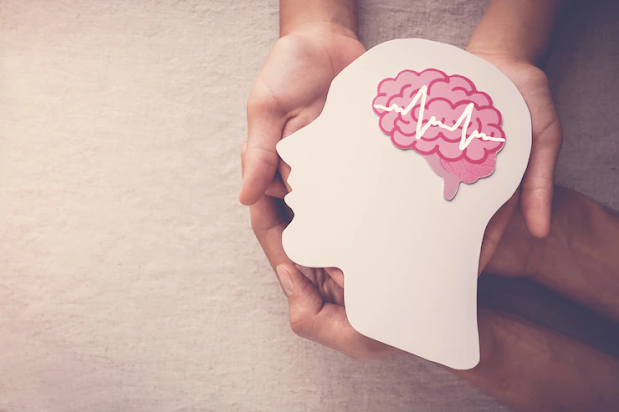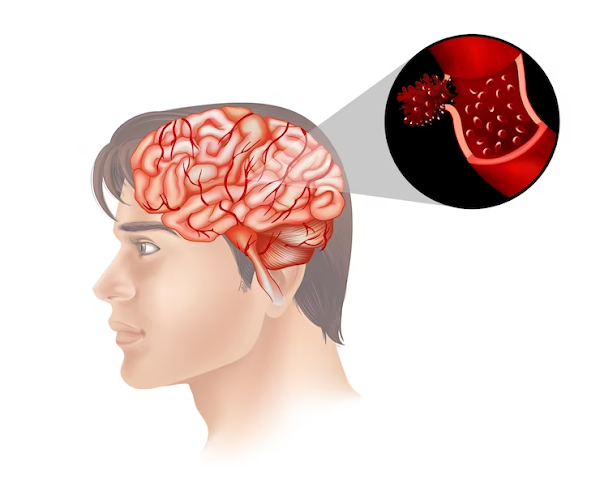Rebuilding Lives Again: How A Stroke Support Group Is Helping Survivors Of Traumatic Brain Injury
Summary: In this blog post, we'll explore how this stroke support group is helping TBI survivors and what impact it's having on their recovery journey. With the help of this incredible support network, many survivors can regain control of their lives and start looking toward brighter futures post-TBI.
Introduction
Traumatic brain injury (TBI) can have a devastating impact on the
lives of survivors, leaving them in need of both physical and emotional
support. But for many survivors, help can be hard to find. That's why one
stroke support group in the UK has set up a unique initiative to provide
meaningful support to TBI survivors. By tapping into the power of community, they
focus on helping patients rebuild their lives and face the challenges of a
traumatic brain injury.
The stroke support group, based in London, was founded by a team of
volunteers who had all experienced TBI in some way. The group works hard to
create an environment that fosters understanding and camaraderie between its
members. The group provides a safe space for survivors to talk openly about
their experiences through weekly meetings, special events, and online forums.
Here, they can share their stories and receive encouragement from one another.
Moreover, the group helps survivors access the care and services they need to help them manage their TraumaticBrain Injury and other related conditions. From psychological care to physical rehabilitation services and even employment assistance, the group works hard to ensure that all members have access to the resources they need for successful recovery.
What is a stroke?
A stroke is a medical emergency. It happens when the blood supply to
part of your brain is cut off. A blockage can cause strokes in an artery or a
bleed in the brain. Both can cause brain damage and are life-threatening. Most
people who have a stroke are over the age of 65, but anyone can have one. If
you believe someone may have a stroke, acting fast is essential.
There are two kinds of strokes: ischemic and hemorrhagic. Ischemic
strokes happen when an artery to the brain is blocked, usually by a blood clot.
It cuts off the supply of blood to the brain. Hemorrhagic strokes happen when
there's bleeding in or around the brain. It can be due to an aneurysm or other
blood vessel problems.
Ischemic strokes are more ordinary than hemorrhagic strokes. Approx
87% of all strokes are ischemic strokes. In ischemic strokes, time is critical
because the sooner you get treatment, the better your chances are for recovery.
So if you think someone may have an Ischemic stroke, it's crucial to act fast.
The symptoms of a stroke rely on which part of the brain is impacted
by the lack of blood flow. They may include:
* Hurried weakness or numbness in the face, leg, or arm,
particularly on one side of the body
* Confusion or difficulty speaking or understanding
* Vision problems, such as blurred vision or seeing double
* Trouble walking, dizziness, or loss of balance
* Severe headache with no known cause
What are the effects of a
stroke?
A stroke can have many effects, depending on the area of the brain
affected. The most common effects are paralysis, speech and language, and
vision. Stroke survivors may also experience changes in their mood and
personality, and they may have difficulty thinking and remembering things.
Other effects may include problems with balance, difficulty
swallowing, and problems with movement, such as weakness or loss of
coordination. In addition, some stroke survivors experience fatigue, dizziness,
and depression. Lastly, long-term effects can include cognitive impairment
(problems with thinking) and a decreased ability to perform everyday
activities.
How does the support group
help survivors of TBI?
A Stroke Support Group
can provide survivors with much-needed companionship and emotional support. The
group can also offer valuable information and resources to help survivors cope
with the challenges of living with a TBI. In addition, the support group can
serve as a sounding board for survivors as they work to rebuild their lives
after a TBI.
The support group can also allow survivors to connect with others
who have gone through comparable backgrounds and gain insights from their
perspectives. Through sharing their stories, members can build a sense of
understanding and camaraderie with one another.
Finally, a TBI support group can provide an outlet for survivors to
express their feelings and frustrations in a safe and supportive environment.
It can be invaluable for survivors who feel isolated or overwhelmed by the
changes in their lives.
Conclusion
The story of the Stroke Support Group is an inspiring example of how
a small group can make a massive difference in the lives of those affected by
traumatic brain injury. By coming together to share experiences and stories,
they have built a community where members can find understanding, support, and
guidance. With their help, survivors of TBI are no longer alone – they now have
access to resources that can support them in rebuilding their lives again.
Together, these individuals continue to be an incredible source of strength for
each other and Donate To Veterans InNorthern Virginia as a reminder that even during our darkest hours, we can
come out on top with resilience and hope.




Comments
Post a Comment